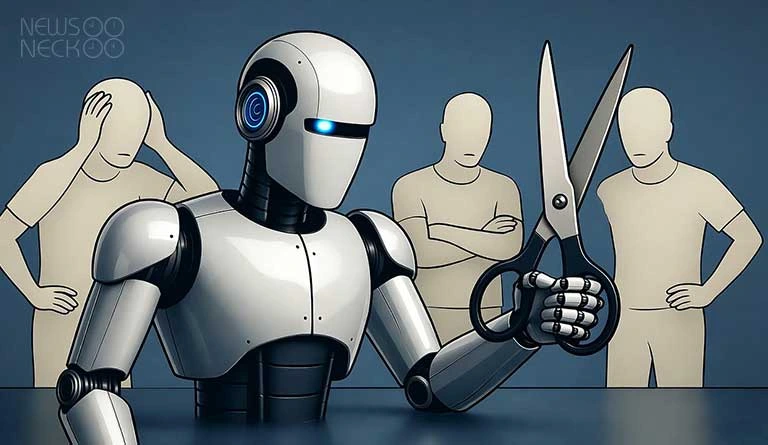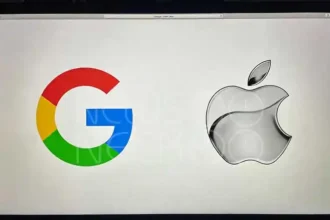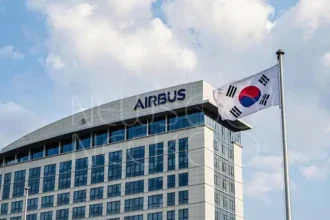Is AI the Real Reason for Mass Job Cuts? Workers and Experts Are Skeptical
When Sarah, a marketing manager at a major tech company, was laid off last month, the email she received was clear. The company was making a “strategic shift to leverage new artificial intelligence technologies.” Her role, it stated, was no longer needed. But Sarah, who asked to use a pseudonym to protect her future job prospects, saw a different story.
“Our department had just had a record quarter,” she told CNBC. “Then, suddenly, we were told AI made our positions redundant. It felt less like a technological necessity and more like a convenient, buzzword-friendly excuse for a round of cuts they already wanted to make.”
Sarah’s story is becoming increasingly common. From tech giants to major retailers, companies are announcing thousands of job cuts, and in many cases, they are pointing the finger directly at AI. They call it a necessary “restructuring” for the future. But a growing chorus of critics, including industry analysts, union leaders, and affected employees, are pushing back. They argue that AI is being used as a public relations shield for layoffs that are fundamentally about older, more traditional corporate goals: boosting profits and pleasing shareholders.
The Corporate Justification: “Efficiency” and “Restructuring”
The corporate messaging has been remarkably consistent. In earnings calls and press releases, executives speak of a new era.
“We are entering a period of accelerated investment in AI,” a typical statement might read. “As we integrate these powerful new tools to drive efficiency, we have made the difficult decision to eliminate certain roles to better align our workforce with our future needs.”
The language is strategic and forward-looking. It paints a picture of a company boldly adapting to an inevitable technological wave. For investors, this can be a reassuring signal that a company is cutting costs and modernizing its operations. In many cases, stock prices have risen following these announcements.
A recent analysis by a leading consulting firm found that mentions of “AI” and “efficiency” on corporate earnings calls have surged by over 150% in the past year, often in the same breath as discussions of “workforce optimization.”
The Skeptics’ View: A “Good Excuse” for Broader Cuts
However, many experts are questioning the direct causal link. They do not deny that AI will transform the workplace, but they see its current use as a justification for layoffs as being, at best, premature.
“AI is a fantastic scapegoat,” said Dr. Evelyn Reed, a labor economist at The Future of Work Institute. “It’s new, it’s poorly understood by the general public, and it carries an aura of inevitability. Blaming job cuts on AI is a powerful way to sidestep questions about over-hiring during the pandemic or a simple need to improve profit margins ahead of quarterly reports.”
You Might Like it: Meta, Blackrock Spending Billions in AI Race
Critics point to several key inconsistencies:
- The Timing: Many of the companies announcing AI-driven layoffs are the same ones that engaged in a hiring frenzy just two years prior.
- The Roles Affected: Often, the jobs being cut are in departments like human resources, recruiting, and marketing areas where AI tools are still in their infancy and far from being able to fully replace human judgment and strategy.
- The Financials: In numerous cases, these companies remain highly profitable, leading to accusations that the layoffs are more about maximizing shareholder returns than technological necessity.
The table below summarizes the conflicting narratives:
| The Corporate Narrative | The Critics’ Counter-Argument |
|---|---|
| We are restructuring for an AI-driven future. | This is a cover for cutting jobs they over-hired for during the pandemic boom. |
| AI brings new efficiencies that require fewer human workers. | The technology is not yet advanced enough to justify mass layoffs in many of the targeted roles. |
| This is a necessary, forward-thinking business decision. | This is a short-term financial decision to boost stock prices and please investors. |
The Human Cost and The Path Ahead
For workers, the distinction is more than academic. Being laid off due to a company’s poor planning feels different than being made redundant by a genuine technological breakthrough. The “AI excuse,” as some call it, can add a layer of personal and professional anxiety, making workers question their long-term value in any industry.
Unions are taking note. “We are preparing for a fight on two fronts,” said Mark Thompson, a director at a major communications union. “First, to ensure that the integration of AI is fair and transparent. And second, to challenge the narrative that every single layoff is an unavoidable consequence of progress. We will be demanding proof.”
The reality likely lies somewhere in the middle. AI will undoubtedly displace some jobs while creating others. But the current wave of layoffs highlights a critical moment in the adoption of this technology. It is a test of corporate transparency.
Are companies truly being reshaped by AI, or are they using its powerful brand to dress up old-fashioned cost-cutting? For the thousands of employees receiving those termination emails, the answer to that question matters just as much as the technology itself. As the dust settles, investors, regulators, and the public will be watching closely to see if the promise of AI is being used to build the future or simply to justify a painful present.
Author: Yasir Khan
Date: 19 Oct, 2025
For More Updates, Visit Newsneck














One Comment
Thanks for sharing. I read many of your blog posts, cool, your blog is very good.